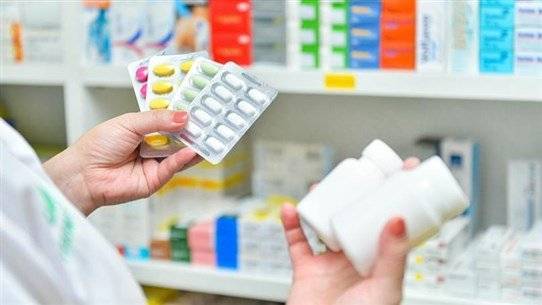The suffering of Lebanese people is growing day by day, especially regarding health concerns amid rising hospitalization costs, which have become a significant burden on everyone, compounded by a large number of medications being unavailable or support being completely or partially lifted on many of them. However, there is a ray of hope that deserves support and awareness among Lebanese citizens: it is their right without any favors from anyone. The solution lies in 262 primary health care centers spread across various regions in Lebanon without exception, offering numerous services ranging from medication to vaccinations and clinics, all for a very nominal fee.
Dr. Randa Hamada, Director of Primary Health Care at the Ministry of Health, explains the nature of these centers, which provide high-quality health services at a nominal cost for all community members under the ministry's supervision. Their services include general and family medicine, pediatrics and vaccination services, gynecology and reproductive health, cardiology, endocrinology and diabetes, dentistry, mental health, diagnostic services, health education, and essential medications for chronic and non-chronic conditions, excluding cancer medications and treatments for chronic diseases like thalassemia.
The first question that comes to people's minds is how to benefit from these services? The process is very simple. The health center receives all individuals residing in Lebanon, whether Lebanese, Syrian, or others. Upon visiting the center, it is sufficient to present any form of identification, such as an ID card, a family registration document, a passport, or a letter from the local mayor. A special file is then opened for the patient, allowing access to the available service package. It is also noteworthy that even unregistered individuals are included in the services of these centers, as well as those insured by the National Social Security Fund, especially in light of the significant crisis faced by the health sector and insurance entities, and the failure to raise the rates, thus preventing even the insured from bearing the exorbitant costs of medication and other health services.
Many do not even know of the existence of these centers, possibly due to a lack of publicity, and some suffer from a crisis of trust regarding anything official or government-related. To those individuals, Hamada says via MTV: "Primary health care centers are a right for everyone, regardless of nationality, race, affiliation, or religion. They are the last refuge for Lebanese people to receive services with dignity." She emphasizes that no "intermediary" exists in these health care centers—no party, sect, or official; there is no room for clientelism, and every citizen has the right to access medication, vaccinations, and health consultations.
The crisis of trust is significant, and there is a need for the state to regain its strength and provide citizens with their basic rights, especially health-related ones. Until then, it is essential to highlight these shining areas, and this is one of the avenues you can turn to. The centers are available across Lebanese territory, and you can inquire by calling 01-830371 / 72, and for extension, dial 901.




